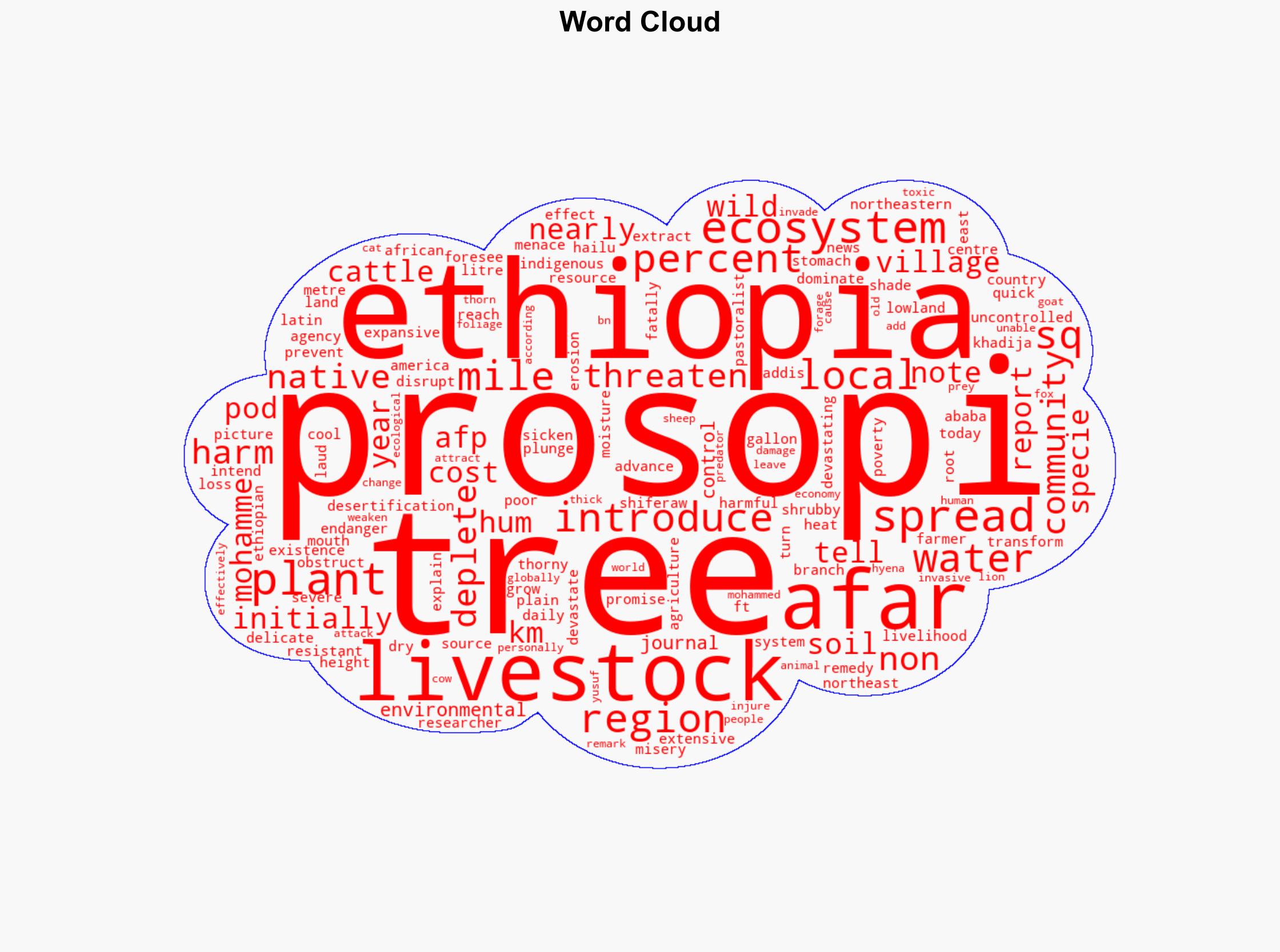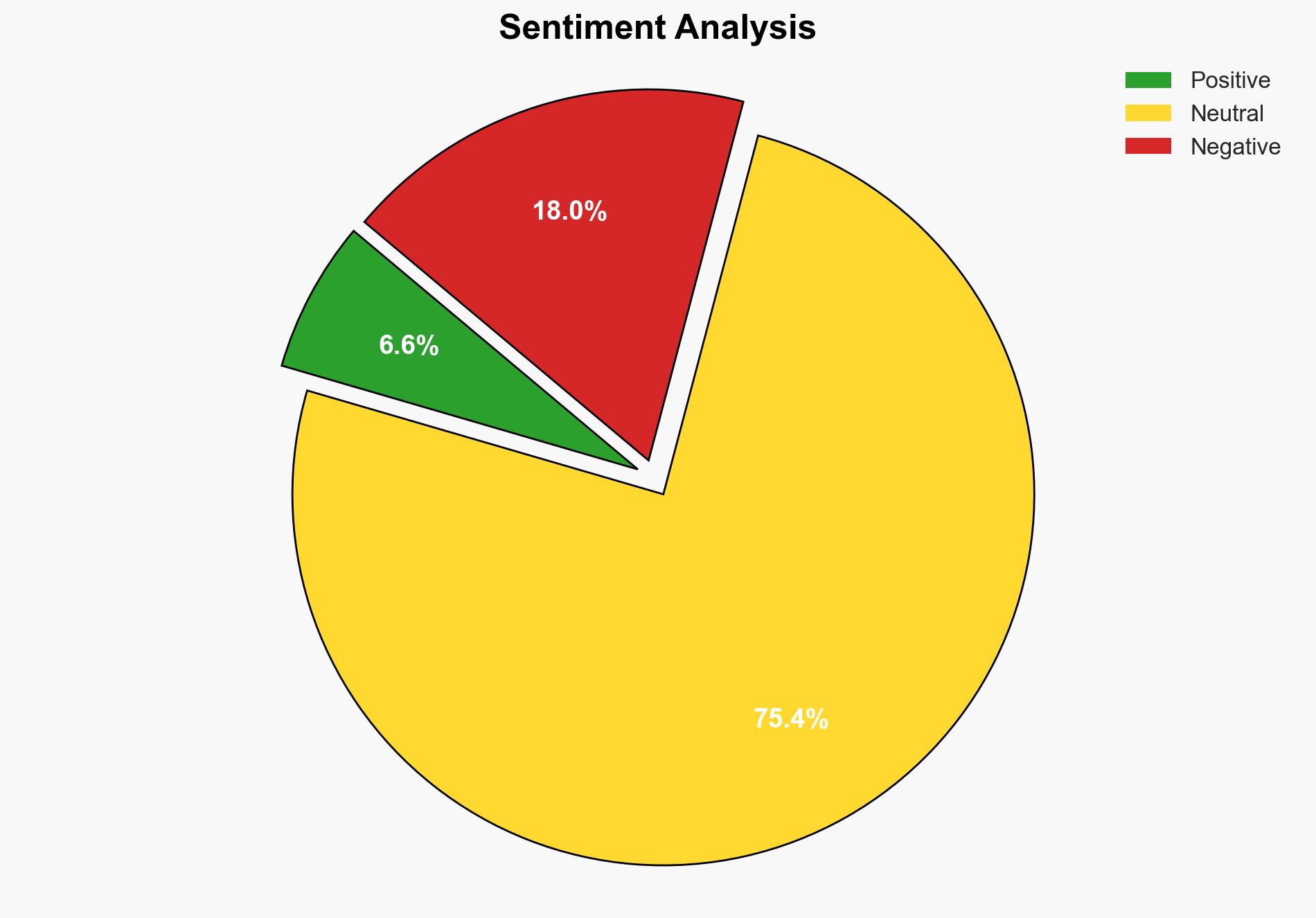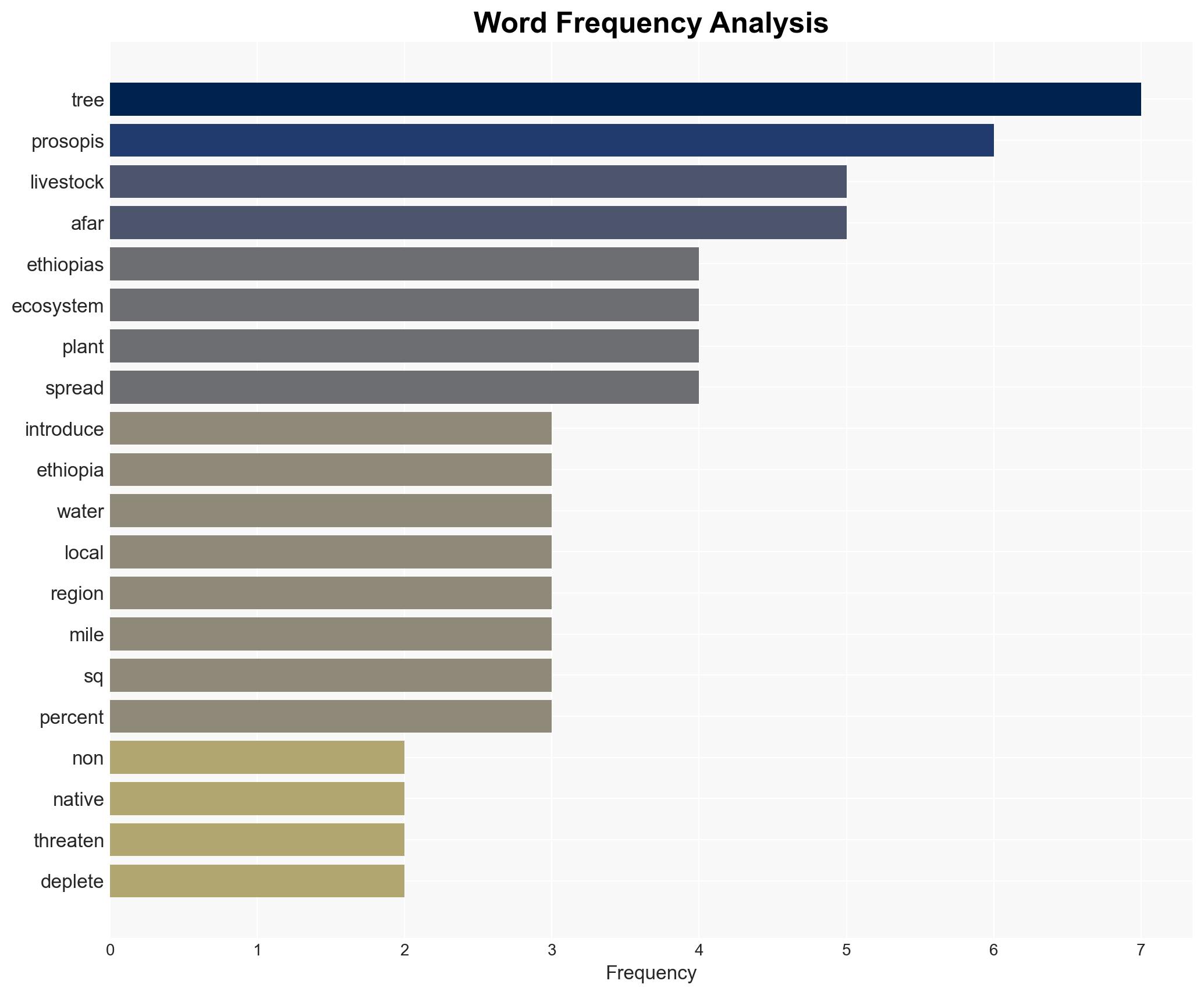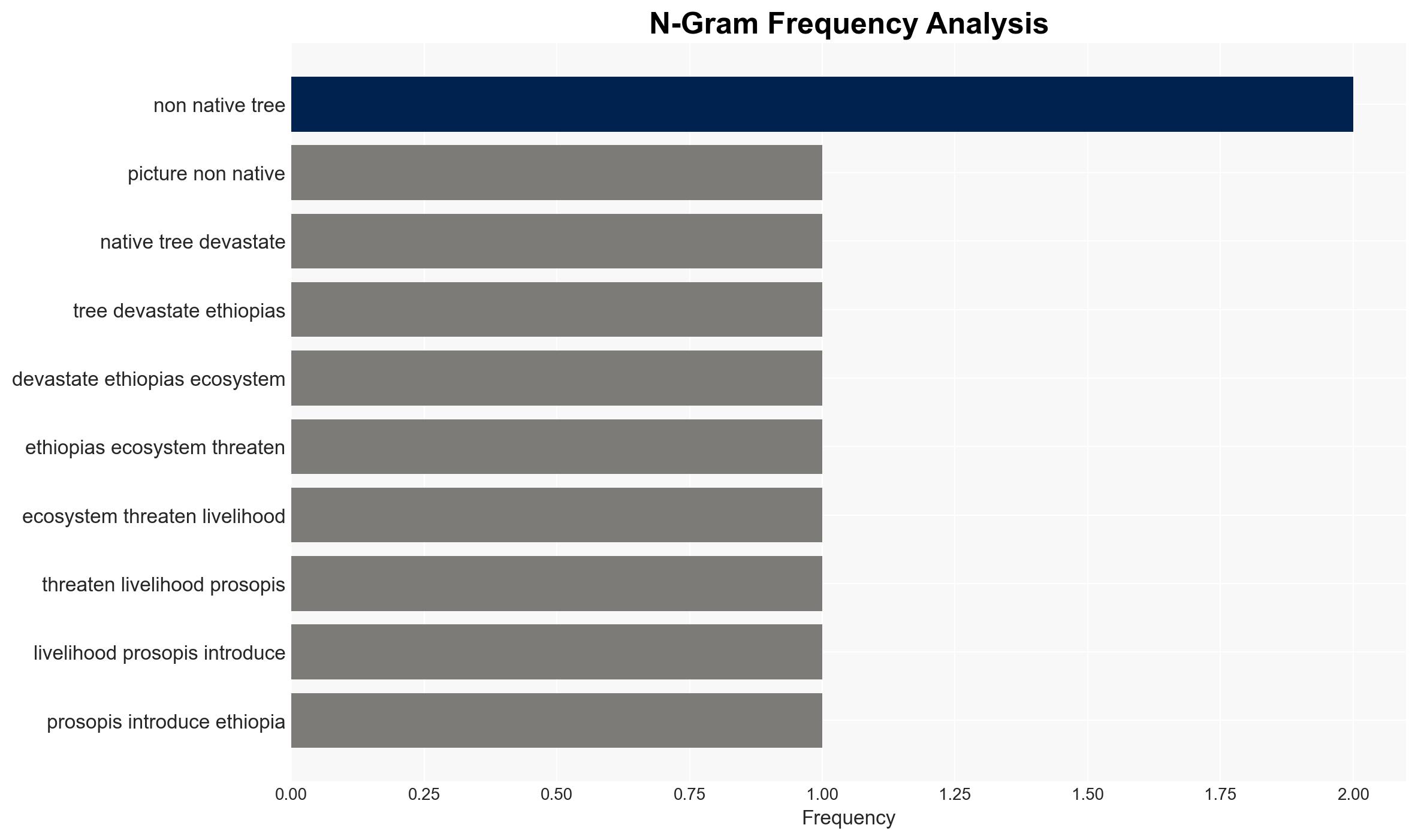Non-native tree devastates Ethiopias ecosystems and threatens livelihoods – Al Jazeera English
Published on: 2025-11-13
AI-powered OSINT brief from verified open sources. Automated NLP signal extraction with human verification. See our Methodology and Why WorldWideWatchers.
Intelligence Report: Non-native tree devastates Ethiopia’s ecosystems and threatens livelihoods – Al Jazeera English
1. BLUF (Bottom Line Up Front)
The invasive Prosopis juliflora tree is significantly impacting Ethiopia’s ecosystems and local livelihoods, particularly in the Afar region. The most supported hypothesis is that the tree’s spread is primarily due to inadequate management and natural dispersal mechanisms, exacerbated by regional socio-economic challenges. Immediate and coordinated intervention is recommended to mitigate ecological and economic damage. Confidence Level: Moderate.
2. Competing Hypotheses
Hypothesis 1: The spread of Prosopis is primarily due to natural dispersal mechanisms and lack of effective management strategies. This hypothesis is supported by evidence of the tree’s rapid growth, extensive root systems, and seed dispersal by animals such as camels.
Hypothesis 2: The spread of Prosopis is exacerbated by socio-economic factors, including insufficient resources for control measures and lack of awareness among local communities. This is supported by reports of inadequate funding and local efforts to manage the spread.
Hypothesis 1 is more likely due to the biological characteristics of the tree and observed patterns of spread, but Hypothesis 2 highlights critical socio-economic factors that cannot be ignored.
3. Key Assumptions and Red Flags
Assumptions: It is assumed that local and national authorities have limited capacity to manage invasive species due to resource constraints. Another assumption is that the ecological impact of Prosopis is uniformly negative across affected regions.
Red Flags: Reports from local communities may be biased due to the direct impact on their livelihoods. There is also a risk of underestimating the potential for adaptive management strategies to mitigate the spread.
4. Implications and Strategic Risks
The unchecked spread of Prosopis could lead to severe ecological degradation, loss of biodiversity, and further economic hardship for local communities. Politically, this could lead to increased tensions between regional and national authorities over resource allocation. Economically, the cost of managing the spread could strain already limited budgets, potentially leading to international aid dependency.
5. Recommendations and Outlook
- Actionable Steps: Implement a coordinated national strategy involving local communities, NGOs, and international partners to manage and control Prosopis spread. Increase funding for research into biological control methods and alternative livelihoods for affected communities.
- Best Scenario: Effective management and control measures reduce the spread of Prosopis, restoring ecosystems and improving local livelihoods.
- Worst Scenario: Failure to control Prosopis leads to widespread ecological collapse and socio-economic instability in affected regions.
- Most-likely Scenario: Partial success in controlling Prosopis with ongoing challenges due to resource constraints and socio-economic factors.
6. Key Individuals and Entities
Khadija Hum – Local livestock farmer affected by Prosopis.
Hailu Shiferaw – Researcher at the Ethiopian Water and Land Resource Centre.
Yusuf Mohammed – Local community member noting changes due to Prosopis.
Ketema Bekele – Associate Professor of Environmental Economics at Ethiopia’s Haramaya University.
7. Thematic Tags
Regional Focus: Ethiopia, Environmental Impact, Invasive Species, Socio-economic Challenges
Structured Analytic Techniques Applied
- Causal Layered Analysis (CLA): Analyze events across surface happenings, systems, worldviews, and myths.
- Cross-Impact Simulation: Model ripple effects across neighboring states, conflicts, or economic dependencies.
- Scenario Generation: Explore divergent futures under varying assumptions to identify plausible paths.
Explore more:
Regional Focus Briefs ·
Daily Summary ·
Methodology





